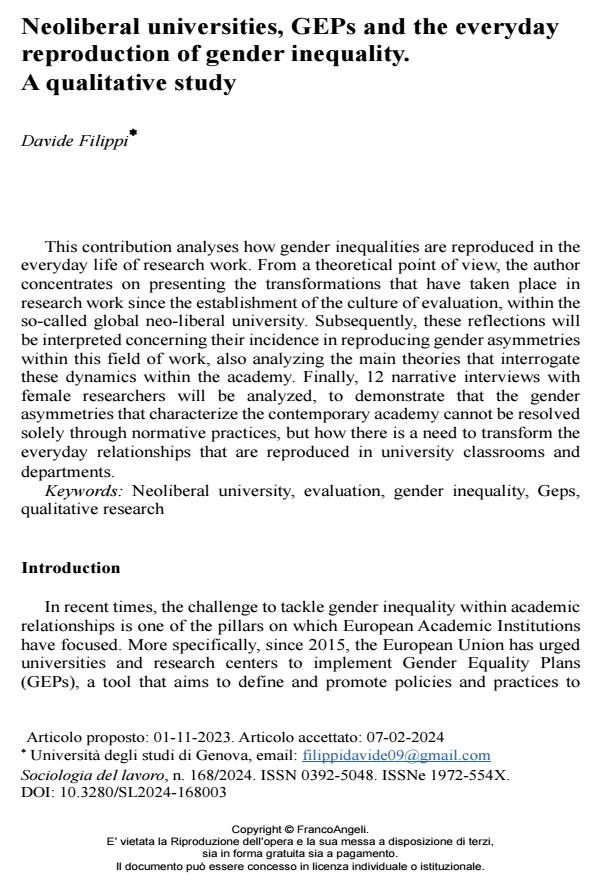Neoliberal universities, GEPs and the everyday reproduction of gender inequality. A qualitative study
Journal title SOCIOLOGIA DEL LAVORO
Author/s Davide Filippi
Publishing Year 2024 Issue 2024/168
Language English Pages 21 P. 50-70 File size 233 KB
DOI 10.3280/SL2024-168003
DOI is like a bar code for intellectual property: to have more infomation
click here
Below, you can see the article first page
If you want to buy this article in PDF format, you can do it, following the instructions to buy download credits

FrancoAngeli is member of Publishers International Linking Association, Inc (PILA), a not-for-profit association which run the CrossRef service enabling links to and from online scholarly content.
This contribution analyses how gender inequalities are reproduced in the everyday life of research work. From a theoretical point of view, the author concentrates on presenting the transformations that have taken place in research work since the establishment of the culture of evaluation, within the so-called global neo-liberal university. Subsequently, these reflections will be interpreted concerning their incidence in reproducing gender asymmetries within this field of work, also analyzing the main theories that interrogate these dynamics within the academy. Finally, 12 narrative interviews with female researchers will be analyzed, to demonstrate that the gender asymmetries that characterize the contemporary academy cannot be resolved solely through normative practices, but how there is a need to transform the everyday relationships that are reproduced in university classrooms and departments.
Keywords: Neoliberal university, evaluation, gender inequality, Geps, qualitative research
Davide Filippi, Neoliberal universities, GEPs and the everyday reproduction of gender inequality. A qualitative study in "SOCIOLOGIA DEL LAVORO " 168/2024, pp 50-70, DOI: 10.3280/SL2024-168003